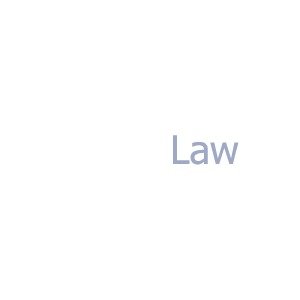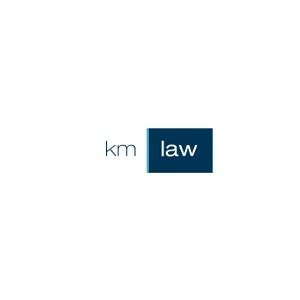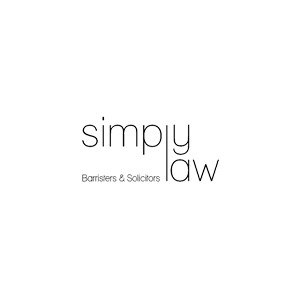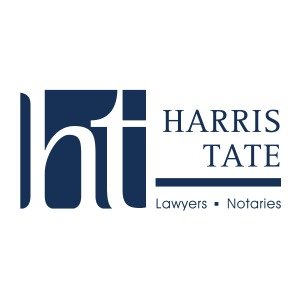Best Antitrust Litigation Lawyers in Tauranga
Share your needs with us, get contacted by law firms.
Free. Takes 2 min.
List of the best lawyers in Tauranga, New Zealand
About Antitrust Litigation Law in Tauranga, New Zealand
Antitrust litigation concerns legal cases involving competition and fair trading laws. In Tauranga, as in the rest of New Zealand, antitrust issues are governed by national laws designed to prevent anti-competitive practices, such as price-fixing, market allocation, cartel behaviour, and misuse of market power. These laws are in place to ensure that businesses compete fairly and that consumers benefit from lower prices, better quality, and more choices. Cases can involve large multinational companies, small local businesses, or any entity engaged in commercial activity within Tauranga. If a business or individual breaches competition law, affected parties may seek redress through the courts or regulatory bodies.
Why You May Need a Lawyer
Antitrust issues can be complex and often require specialized legal expertise. Common situations where you may need a lawyer include:
- Suspecting a competitor is engaging in illegal practices, such as fixing prices or rigging bids
- Discovering your business is being investigated for alleged anti-competitive conduct
- Being accused of collusion, cartel activity, or other breaches of competition law
- Seeking to challenge a merger or acquisition that may reduce market competition
- Wanting advice on compliance with the Commerce Act and other relevant laws
- Pursuing damages if your business has been harmed by unfair market practices
- Defending your company against enforcement action or penalties by regulatory agencies
A lawyer can help interpret the law, assess your risk, develop a defence, or seek compensation.
Local Laws Overview
The primary framework governing antitrust and competition law in Tauranga is the Commerce Act 1986. This Act applies nationwide and is enforced by the Commerce Commission, New Zealand's regulatory authority. Key aspects include:
- Cartels - Agreements between businesses to fix prices, allocate markets, or restrict output are prohibited
- Misuse of Market Power - It is illegal for businesses with substantial market power to take advantage of that power for anti-competitive purposes
- Anti-competitive Mergers - Mergers or acquisitions that significantly lessen competition are not allowed
- Penalties - Those found guilty can face heavy fines, court orders, and other sanctions
- Enforcement - The Commerce Commission can investigate suspected breaches, and legal actions can also be brought by affected parties in courts located in Tauranga or elsewhere in New Zealand
Recent updates to the Commerce Act have brought harsher penalties for cartel conduct, including criminal liability for individuals in severe cases.
Frequently Asked Questions
What is antitrust litigation?
Antitrust litigation involves legal actions related to breaches of competition law, typically under the Commerce Act 1986. It addresses unfair business practices that harm competition or consumers.
How do I know if my business is breaching antitrust laws?
If your business coordinates prices, divides markets, restricts supply with competitors, or abuses a dominant market position, it could be at risk. Consulting a lawyer is the best way to assess your compliance.
What should I do if contacted by the Commerce Commission?
Seek legal advice immediately. Anything you say can affect any investigation or legal proceedings. A lawyer will help protect your rights and advise on a response strategy.
Can individuals be prosecuted for antitrust offences?
Yes. Individuals, including executives and employees, can be held personally liable for participation in illegal anti-competitive conduct, especially cartel-type offences.
What penalties can apply for breaching competition law?
Significant financial penalties can be imposed on both individuals and companies. In serious cartel cases, criminal sanctions, including imprisonment, may also apply.
How are antitrust cases investigated and enforced?
The Commerce Commission investigates suspected breaches using information requests, interviews, and sometimes dawn raids. Enforcement can follow through settlements or court actions.
Can I seek compensation if I have suffered from anti-competitive conduct?
Yes. If your business has suffered due to another’s illegal competition practices, you may sue for damages through civil litigation.
Are mergers or acquisitions always reviewed by authorities?
Not always, but if they may substantially lessen competition, they should be notified to the Commerce Commission for clearance or authorization.
What legal defences are available against antitrust allegations?
Defences might include proving the conduct was not anti-competitive, involved no unlawful agreement, or fell under legal exemptions. The specifics depend on each case.
How can a lawyer help with compliance and risk management?
A lawyer can review contracts, company policies, and commercial practices to identify risks, provide staff training, and develop compliance programs to avoid breaches.
Additional Resources
Several organizations and bodies can assist with antitrust matters in Tauranga and throughout New Zealand:
- Commerce Commission - Investigates and enforces competition law
- New Zealand Law Society - Directory of lawyers specializing in antitrust and competition law
- Ministry of Business, Innovation and Employment (MBIE) - Provides guidance on business laws and regulations
- Community Law Centres - Offer basic legal advice and assistance, including free and low-cost services
- Local Tauranga Law Firms - Many local firms have expertise in commercial and competition law
Next Steps
If you believe you are facing an antitrust issue in Tauranga, or if your business is at risk of breaching competition laws, take the following steps:
- Gather all relevant documentation relating to your business practices, agreements, and communications
- Contact a lawyer with experience in antitrust or competition law for a confidential discussion
- If contacted by regulators or facing an investigation, do not respond substantively without first obtaining legal advice
- Consider seeking a compliance audit for your business to prevent potential future breaches
- If you have suffered harm due to anti-competitive behavior, discuss the possibility of litigation or settlement with your lawyer
Early legal advice can make a significant difference in resolving antitrust matters effectively. Take prompt action to protect your rights and business interests.
Lawzana helps you find the best lawyers and law firms in Tauranga through a curated and pre-screened list of qualified legal professionals. Our platform offers rankings and detailed profiles of attorneys and law firms, allowing you to compare based on practice areas, including Antitrust Litigation, experience, and client feedback.
Each profile includes a description of the firm's areas of practice, client reviews, team members and partners, year of establishment, spoken languages, office locations, contact information, social media presence, and any published articles or resources. Most firms on our platform speak English and are experienced in both local and international legal matters.
Get a quote from top-rated law firms in Tauranga, New Zealand — quickly, securely, and without unnecessary hassle.
Disclaimer:
The information provided on this page is for general informational purposes only and does not constitute legal advice. While we strive to ensure the accuracy and relevance of the content, legal information may change over time, and interpretations of the law can vary. You should always consult with a qualified legal professional for advice specific to your situation.
We disclaim all liability for actions taken or not taken based on the content of this page. If you believe any information is incorrect or outdated, please contact us, and we will review and update it where appropriate.

















